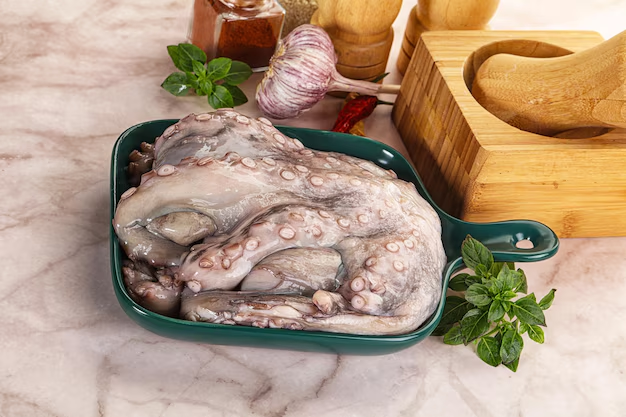How Long Can You Keep a Turkey in the Refrigerator? A Comprehensive Guide to Safe Turkey Storage
When it comes to preparing a turkey, whether for Thanksgiving or any other feast, one key aspect often gets overlooked until the last minute: storage. It’s not just about choosing the right bird or mastering the perfect roast; it's about making sure your turkey remains safe to eat all the way from purchase to plate. Storing turkey properly in your refrigerator can mean the difference between a successful feast and a potential culinary mishap. But for how long can you actually keep a turkey in the refrigerator and ensure it stays fresh? Let’s delve into the details.
Understanding Turkey Storage Basics
Fresh vs. Frozen Turkey
Fresh Turkeys: Fresh turkeys should be kept in the refrigerator at a temperature of 40°F (4°C) or below. Unlike frozen birds, they haven’t been chilled to freezing and thus have a shorter shelf life.
Frozen Turkeys: These can be kept in the freezer for longer periods—often several months. When you're ready to cook, you'll need to transfer the turkey from the freezer to the refrigerator to thaw safely.
Safe Refrigeration Time
Once you bring a fresh turkey home from the store, you have a short window of time to keep it safely in the refrigerator. Typically, a fresh turkey should be cooked within 1 to 2 days of purchase. For frozen turkeys, the thawed bird must be cooked within the same time frame after it has completely thawed.
Thawing Turkey in the Refrigerator
The Importance of Thawing Slowly
Thawing a turkey in the refrigerator is the safest method as it allows the bird to defrost evenly without entering unsafe temperature zones that promote bacteria growth.
How Long Does Thawing Take?
As a general guideline, allow 24 hours of thawing time for every 4 to 5 pounds of turkey. So, if you have a 20-pound turkey, plan to move it from freezer to fridge four to five days before you intend to cook it.
Tips for Effective Thawing
- Place on a Tray: To prevent cross-contamination from any juices that may leak as it thaws, place the turkey on a tray or in a container.
- Keep Wrapped: Keep it in its original packaging during thawing to ensure cleanliness.
- Temperature Check: Ensure your refrigerator is kept at 40°F (4°C) or below during the process.
Post-Cooking Storage: What to Do With Leftovers
Storing Leftover Turkey
Cooked turkey needs to be refrigerated within 2 hours of cooking to prevent bacteria growth. Aim to eat refrigerated leftovers within 3 to 4 days after cooking.
How to Package Leftovers
- Divide and Conquer: Separate the meat from the bones and store both in airtight containers.
- Smaller Portions: Use smaller portions to help with faster cooling and to make reheating easier.
Freezing Leftover Turkey
If you won't use your leftovers in a few days, freezing is your best bet. Cooked turkey can last up to 4 months in the freezer without spoiling.
Practical Turkey Storage Tips
Keeping Things Safe and Tidy
🔹 Check the Temperature: Keep a thermometer in your fridge to ensure it’s at the correct temperature.
🔹 Use a Tray: When storing or thawing, put the turkey on a rimmed baking sheet to catch any drips.
🔹 First in, First Out: Use products in the order of time they were stored, to ensure nothing languishes past its prime.
🔹 Monitor Smells and Appearance: If a turkey develops a sour odor or slimy texture, it’s time to toss it.
Visual Summary: Turkey Storage Tips 🦃
Fresh Turkey:
- Refrigerator: 1-2 days
- Check Temp: ≤ 40°F (4°C)
Frozen Turkey:
- Freezer: Months-long storage
- Thaw in Fridge: 24 hours/4-5 lbs of turkey
Cooked Turkey:
- Fridge: 3-4 days
- Freezer: Up to 4 months
Navigating Other Turkey Storage Scenarios
Storage During Power Outages
In case of a power outage, keep your fridge closed as much as possible to retain its cold temperature. A refrigerator can keep food safe for about 4 hours if unopened. If it’s uncertain whether your turkey stayed below 40°F during a power outage, consider it unsafe.
Special Considerations for Brined Turkeys
Brining a turkey can extend its shelf life slightly in the refrigerator due to the salt, but it's generally recommended to stick to the 1 to 2-day rule for ultimate safety and quality.
Reheating Turkey: Safety First
Methods for Safe Reheating
Avoid reheating turkey in a slow cooker, as it may not reach the hot enough temperatures required to kill bacteria quickly. Instead, reheat in the oven or stove to 165°F (74°C) to ensure safety.
Keeping Juiciness Intact
To prevent dried-out pieces, reheat turkey with a little broth or water and cover with foil to lock in moisture. This will help maintain both flavor and texture.
Wrapping Up With Expert Tips
Plan Ahead: Timely planning is crucial for both thawing and cooking, ensuring you have enough time to prepare without rushing or risking storage mishaps.
Size Matters: Choose a turkey size that best fits your storage capacities and needs. Gigantic turkeys can be tougher to both store safely and cook appropriately.
In incorporating these safe storage practices, your turkey will be more than just tasty—it will also be reliably safe and delightful for all who partake in your meal. Whether fresh or frozen, knowing the ins and outs of storage will keep your kitchen adventures worry-free and your feasts a cut above the rest. So, sharpen those carving knives, set your timers, and let these guidelines set the stage for a successful and delicious turkey undertaking. 🦃✨

